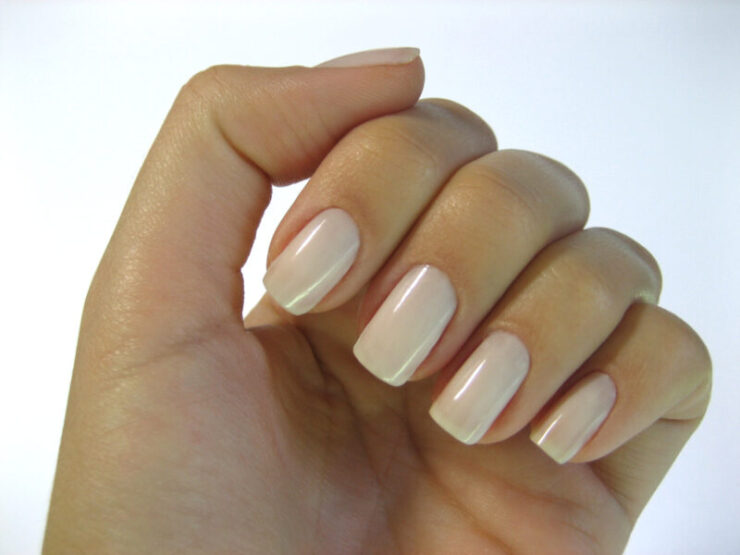Question: Does nail polish hinder ablution (wudu) or major ablution (ghusl)?
This question may be answered from two points of view:
1) Comparison of Nail Polish to Henna
Nail polish is a material that forms a layer over nails and prevents water from soaking through. Women use it for adornment. There are contradictions weather it hinders ablution, since it did not exist in the time of old scholars. In the old times, women used to put on henna and particles of henna formed a layer over nails. Tradition of henna still continues.
God commands as follows in the verse related to ablution:
“Oh you who believe! When you rise to perform prayer, wash your faces and your forearms to the elbows… “ (Al-Ma’ida/The Feast 5:6)
Washing is described as flowing water over that part of the body. According to Abu Hanifa and Imam Mohammad, water needs to flow even though it is a single drop. Sweeping wet hands over the body part, like rubbing with oil, does not suffice. Abu Yusuf, on the other hand, finds it enough that the part is wet and does not require water to flow. (Ibn Abidin, Hashiat ar-Redd al-Muhtar, Istanbul, 1984, v. 1, p. 96)
It is obvious that sweeping wet hands over the body part does not provide washing, which is not the command in the verse. Henna also forms a layer over the nail, though it is utterly thin. Colour would not remain over the nail in another way. The particles of henna mud create a hard layer at the bottom of the fingernails and prevent water from contacting the nail. Henna is different than nail polish in the way that water can reach the nail through its pores. However, it does not let water soak the whole nail, yet flows over the nail. To provide this, water should be flowing between the nail and the henna, in which case no henna would remain on the nail. This is obviously impossible. Therefore, a nail with henna cannot be washed as commanded either.
The Almighty God commands at the end of the verse related to ablution:
“Allah does not desire to put on you any difficulty, but He wishes to purify you that you may be grateful.”
Since women are not forbidden from adorning themselves out, it is clear that commanding to scratch the henna for ablution would cause difficulty. Therefore, scholars say that putting on henna does not hinder ablution. Hanafi opinion is as follows:
“Henna, dirt of flea, scum, body creams and oils, scum under nails, etc. do not hinder ablution (wudu) or major ablution (ghusl) due to exigencies, though they prevent water from flowing over. ” (Ibn Abidin, Hashiat ar-Redd al-Muhtar, Istanbul, v. 1, p. 155-156)
The exigencies here is the exigency rising from the problem of cleaning the matters above. Because most people would have difficulty to have ablution if they were commanded to clear them. Nail polish is in the same category as the materials above. Since there is not a ruling that forbids women from putting on nail polish, it is obvious that the command to clean them would cause difficulty. The verse above informs that Allah does not desire to put on us any difficulty, but to purify us. People with nail polish would be counted clean if they wash their hands, and therefore the command of Allah is fulfilled.
2) Simple Deduction
As we mentioned above, The Almighty God commands:
“When you rise to perform prayer, wash your faces and your forearms to the elbows” (5:6)
You see God commands us to wash our hands in the verse above. Now think of yourself for a moment. If you had nail polish on your fingernails and somebody told you to wash your hands; would you reply that you couldn’t do it because you had nail polish, or would you simply go and wash your hands? After having washed your hands, would you consider that you washed your hands or would you consider that you didn’t, but you just rubbed some water on your hands though they didn’t get washed? Would you consider that your hands got clean or not?
It is obvious that you washed your hands, considered your hands as washed, and also considered that they got clean afterward. It is that simple!
If God wanted us to pay attention that water should diffuse on every inch of the skin and fingernails, He would have certainly said so. Obviously, He is not incapable of giving details. So washing means, what you understand of washing. There is nothing more to worry about. You just have to wash your hands and forearms to the elbows.
Consequently, nail polish does not hinder ablution (wudu) or major ablution (ghusl).








Add comment